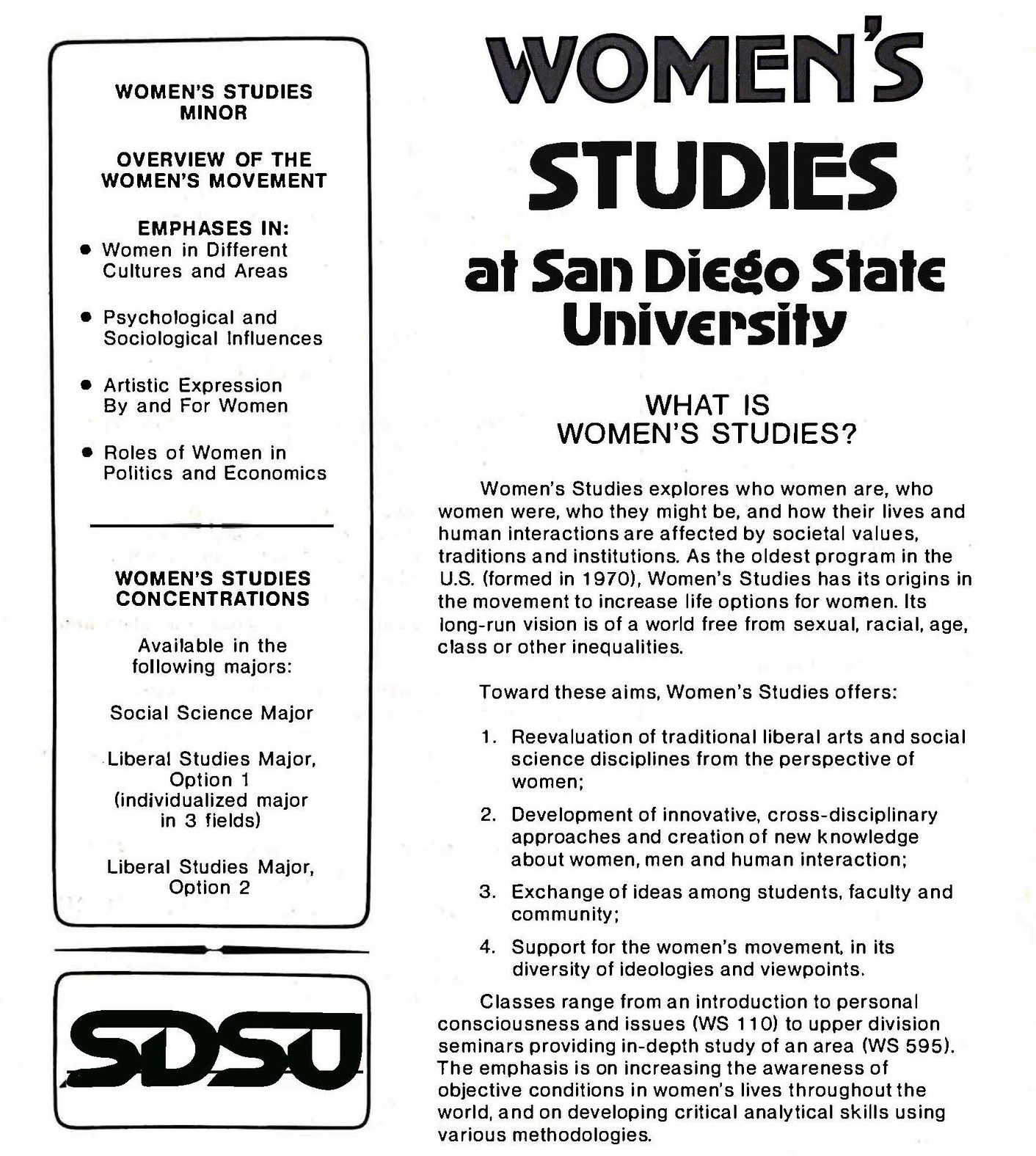I earned my graduate certificate in Women’s, Gender and Sexuality Studies at the University of Oregon, where I did coursework on lesbian cultures, feminist pedagogy, and feminist and queer theory, and it is because of that program that I can create this newsletter.
Yesterday was the first day of spring semester at Presbyterian College and I’m teaching four classes: two sections of Introduction to Latinx Literature, our Research Methods class for English majors, and Introduction to Women’s and Gender Studies.
I’ve been teaching the class since I arrived at PC in 2012, and we’ve had a Women’s and Gender Studies program on the books since the 1990s. Across the country, there are about 800 WGS programs, the first started in 1970 at San Diego State University. The programs were established to combat the erasure and absence of the study of girls and women at all levels of academia: women’s histories untold, women writers untaught, little study of female bodies or concern for women’s health.
Image from SDSU Library.
The establishment of these programs was the result of a long history of women fighting patriarchy in education, and the field was inherently interdisciplinary, because patriarchy as an ideology had shaped all fields of knowledge. Feminist theory helps us to understand that no knowledge system is ever inherently neutral, that all ways of knowing are shaped by the structures of power that produce it.
Revealing these structures is a threat to power, and this explains the attacks on WGS in recent years by the press, religious leaders, politicians, and capitalists. Because the Republican Party does not want Americans to understand that their goal is to continue robbing the people to channel wealth to the elites, it creates fake problems, like transgender athletes in sports or “woke mind viruses” and goes about “solving” these problems by banning books, attacking teachers, shuttering academic programs and defunding public education. Their strategy is part of a global far-right anti-gender movement to blame women and LGBTQ people for social ills, instead of solving actual social problems like wealth inequality or environmental destruction (see Judith Butler’s new book, Who’s Afraid of Gender?).
These attacks on academic freedom, children, and schools have real consequences. I attended three conferences last semester, and at every one, colleagues from Texas and Florida and other states detailed how women’s centers were being closed, how professors were being policed in their research. Librarians spoke about requests for materials being denied if any of the materials included studies of race, ethnicity, gender or sexuality. The hostile takeover of the New College in Florida is a prime example, and the dumpsters full of books from their WGS center an apt symbol of the waste and desecration of teaching and learning.
In South Carolina, we have WGS programs at Furman, PC, Converse, Wofford, Winthrop, USC Columbia, USC Upstate, Coastal Carolina and the College of Charleston. While the state has passed some legislation and policies resulting in book banning in the K-12 system, so far there have been no bills passed like those in Texas and Florida, although with our incoming Republican supermajority, it is possible that H. 4289 will pass the Senate and restrict DEI work at public higher ed institutions in the state. Private institutions like PC, Furman, Converse and Wofford are somewhat immune from this type of legislation, although attacks from the federal level (via the restructuring or elimination of the Department of Education) could have far-reaching consequences for trans students and women on college campuses.
It’s surreal to begin the semester at the start of a second Trump administration, one funded by billionaires like Peter Thiel who have openly expressed the desire to repeal women’s rights to vote. We should have our first woman president, and an administration working for the people and providing protections to academic freedoms. Instead we have this, and if you can, consider supporting local WGS programs. We’re going to need all the help we can get.






I got my minor (only option) in Women's Studies at Clemson in 2004.
SO happy you are helming WGST here at PC! It continues to be essential work. Thank you!!!!!